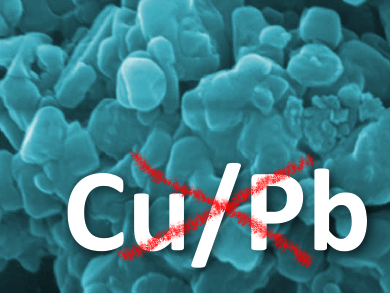Heavy metal ions, such as Pb2+, are toxic, can accumulate in living organisms, and can cause serious diseases. Removing them from water in a cheap, fast, and efficient way on a large scale is an important challenge.
Shufeng Ye, Institute of Process Engineering, Chinese Academy of Sciences, Beijing, and colleagues have developed a polymer that is modified with chelating agents which can bind heavy metal ions. The team first polymerized acrylamide on the surface of colloidal Al(OH)3 particles. The resulting Al(OH)3-polyacrylamide has a star-like structure, with AlOH3 cores surrounded by polyacrylamide chains. The polymer chains were then functionalized with diethylenetriamine as a linker and dithiocarbamate as a chelating agent.
To test the material’s adsorption capacity, the team added the functionalized polymer to solutions of Cu2+ or Pb2+. At concentrations of 50 mg/L, the material removed over 97 % of Cu2+ in 15 minutes and 99 % of Pb2+ in 30 minutes. The polymer can adsorb up to 417 mg Cu2+ or up to 893 mg Pb2+ per gram of adsorbent. The adsorption was attributed mainly to the chelating functional groups. According to the researchers, the adsorbent has potential for industrial applications.
- Dithiocarbamate functionalized Al(OH)3-polyacrylamide adsorbent for rapid and efficient removal of Cu(II) and Pb(II),
Ya Liu, Peng Qian, Yang Yu, Li Xiao, Yongliang Wang, Shufeng Ye, Yunfa Chen,
J. Appl. Polym. Sci. 2017.
DOI: 10.1002/app.45431




